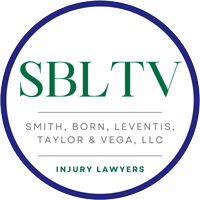
Columbia Rollover Truck
Accident Attorneys
Fighting for justice and compensation after a rollover truck accident in South Carolina
With so many commercial trucks on the road in South Carolina, crashes are inevitable. Due to their large size and heavy loads, these accidents often lead to severe injuries for drivers, passengers and nearby pedestrians. When rollover truck accidents occur, the resulting injuries can be catastrophic and even lead to wrongful death.
Trucking regulations
The Federal Motor Carrier Safety Administration (FMCSA) regulates the trucking industry in the U.S, providing rules and safety oversight for all commercial motor vehicles. In South Carolina and other U.S. states, only drivers with a commercial driver’s license (CDL) are qualified to operate certain classes of large and heavy vehicles such as trucks, tractor-trailers, 18-wheelers, buses and any vehicle that carries hazardous materials.
Most common causes of truck rollover accidents
According to the FMCSA, more than 78% of truck rollovers result from driver error, with almost 50% caused by the driver’s failure to adjust their speed at turns. Other top causes include the following:
- Driver distraction or inattention
- Oversteering or understeering at turns
- Driver fatigue, often due to ignoring federal regulations that limit hours of service
- Insufficient vehicle maintenance, including ignoring regulations to perform safety inspections before starting each day of driving
- Poor road conditions
- Excess, partial or shifting loads
It’s important to note that a driver’s failure to adjust their speed at turns is escalated by poor load distribution because partial loads allow cargo to shift and create an uneven distribution of weight.
Common injuries sustained in rollover truck accidents
Injuries sustained in a truck rollover can be very severe. The damage, whether to the driver or other parties, is caused by large and extremely heavy cargo loads that may also contain hazardous materials.
Common injuries include the following:
- Head and brain injuries
- Neck injuries and severe whiplash
- Back injuries
- Spinal cord injuries and paralysis
- Broken bones
- Burns
- Lacerations
- Amputations
- Lung damage and respiratory issues from toxic chemicals
- Death
Who may be liable for an accident involving a commercial truck?
Parties potentially liable for truck rollover accidents include the following:
- The commercial truck driver
- The trucking company that employs the driver
- The owner of the truck
- Other drivers involved in the accident
- Manufacturers of defective equipment or parts
- Third parties involved in loading and securing cargo
How to prove liability in a truck accident lawsuit
Personal injury law is a tort law subdivision. A tort is a negligent or willful act that causes injury or harm to another. This can include both physical injuries that result from an accident as well as harm to property (like a vehicle).
The 4 principal elements of a personal injury case that a plaintiff (person who was injured) must prove include the following:
- The defendant owed the plaintiff a “duty of care,” which is the legal obligation that individuals or entities have to act in a reasonable manner and take reasonable precautions to prevent harm or injury to others.
- The proximate cause of the accident was (in whole or part) the negligent or willful act or omission of the defendant. This essentially means that the actions (or inactions) of the defendant caused the accident.
- The plaintiff was harmed physically, mentally or emotionally as a result of the defendant’s action or omission.
- The plaintiff incurred damages as a result of the accident. These are usually measured monetarily. However, other damages might be compensated by injunctive relief or restitution.
What’s the burden of proof in personal injury cases?
The burden of proof in personal injury cases is the responsibility of the plaintiff to demonstrate, through evidence and legal arguments, that the defendant is liable for their injuries.
In civil cases, including personal injury cases, the burden of proof is typically based on a “preponderance of the evidence” standard. This means that the plaintiff must establish that it is more likely than not (greater than 50% probability) that the defendant’s actions or negligence caused their injuries.
It’s the plaintiff’s duty to present sufficient evidence to convince the judge or jury of the defendant’s liability and the extent of damages suffered.
Types of damages awarded in personal injury lawsuits
Damages in a personal injury lawsuit can include compensatory and, rarely, punitive damages. Compensatory damages fall under 2 categories: economic damages and non-economic damages.
Economic damages
Economic damages can be measured monetarily. They include the following:
- Expenses for medical, surgical and rehabilitation care
- Payments to make up for lost wages and reduced earning capacity if your injuries prevent you from working
Non-economic damages
Non-economic damages have no widely recognized monetary value and may include compensation for:
- Pain and suffering
- Permanent disfigurement
- Impairment of physical functions
- Loss of companionship or support
- Loss of enjoyment of life
The calculation of non-economic damages is typically determined by a jury using very subjective considerations.
Punitive damages
Punitive damages are awarded only in cases of the defendant’s egregious conduct. They are meant to be a punishment or deterrent. That deterrent could be aimed at the defendant or the public at large.
How long do I have to file a personal injury claim for a truck accident in South Carolina?
In South Carolina, the statute of limitations for filing a personal injury claim for a truck accident is generally 3 years from the date of the accident. This means you have 3 years to initiate legal proceedings by filing a lawsuit.
However, it’s crucial to consult with a personal injury attorney to understand the specific deadlines and any exceptions that may apply to your case. Failing to file within the designated time frame could result in you losing your right to seek any compensation.
The role of a personal injury attorney after a truck accident
If you’re injured as a result of another’s negligence or willful conduct, you will need the services of a skilled truck accident attorney who has experience with personal injury lawsuits.
In the case of a truck rollover, your lawyer should have considerable medical knowledge regarding the diagnosis and treatment of severe and catastrophic injuries. They must also be thoroughly familiar with the physics of truck cargo load distribution, speed and centrifugal force bearing on the risk of rollover accidents.
In addition to helping you gather evidence and file a claim, your attorney can handle all negotiations with the truck driver and any other liable parties to ensure you get maximum compensation for your injuries. If your case goes to trial, your attorney will also argue your case in front of a judge or jury and provide experts to testify on your behalf.
Contact a South Carolina truck accident attorney
Personal injury cases are typically complex from a legal and medical standpoint. The physical science of truck rollovers adds another level of complexity that must be considered as well. Seeking the help of an experienced attorney early on in the process will give you the best chance of success in your case.
At Smith, Born, Leventis, Taylor & Vega, our personal injury lawyers have extensive experience representing truck accident victims in Columbia and surrounding areas. We offer free, no-obligation consultations to give you the help and information you need to get back on the road to physical and financial recovery.
Contact us today to see how we can help you get maximum compensation for your claim.
